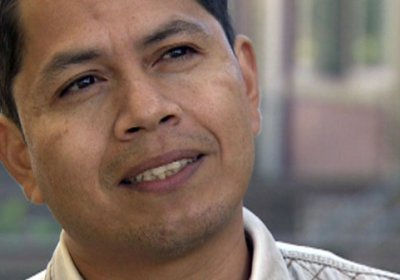“Bangladesh is a world leader in adaptation to natural disasters,” Bangladeshi community organiser Nasima Akter told a Toronto audience January 8. “But now climate change threatens to wash away all our gains.”
Akter had been invited by East End Against Line 9, a neighbourhood committee formed to protest against a proposed cross-Toronto tar-sands pipeline. The East End committee wanted to learn about the implications of Canada’s reckless tar-sands development for a poor and vulnerable nation.
Canada
Workers across the U.S., Canada, and Mexico united in an Inter-Continental Day of Action on January 31 to stop a massive new trade agreement, the Trans-Pacific Partnership — commonly referred to as “NAFTA on steroids.”
In the U.S., the immediate fight is to block a bill that would grant the president “fast track” authority to sign off on the TPP. Defeating fast track would likely stop the TPP.
Fast track is designed to swiftly pass trade deals, circumventing the standard Congressional procedures of hearings, debates, and resolutions.
The ice storm that struck central and eastern Canada and northeastern United States, on December 20-22 should be viewed not only an important news event, but also a big climate change story.
Not because the storm was a direct consequence of the Earth’s average warming temperatures. That would be a speculative claim. No, it’s because of the social crisis created by this weather emergency and what it illustrates about the challenges that are facing human society in a new and warming world.
Power loss
A special meeting of Toronto City Council was convened on November 18 to deal with the city’s “Ford problem”. It was the most bizarre chapter yet in the scandal surrounding Mayor Rob Ford.
The meeting was convened by city councillors to adopt measures to reduce the power and financing of the mayor’s office. The council majority had supported Ford in office, but the politically well-connected conservative mayor had become a liability for business interests in the city.
Canada's colonial past is its present, too, however much Prime Minister Stephen Harper seeks to obfuscate the reality of the history of this land.
Recent events have served as a prime example of how denial of past colonialism helps to perpetuate ongoing colonial relationships. The flash point is the small town of Rexton, New Brunswick, on Canada's east coast.
In April, Calgary-based pipeline company TransCanada ― the same company behind the proposed Keystone XL tar sands pipeline ― formally proposed and launched an open season for a monumental new project: the Energy East tar sands pipeline, a C$12 billion, 4400 kilometer long pipeline connecting Hardisty, Alberta to dedicated export terminals at ports in Quebec City and Saint John, New Brunswick.
The project could carry up to 1.1 million barrels per day of crude oil including a substantial amount of diluted bitumen tar sands crude.
First Nations people have blockaded motorways on October 17 in Rexton, New Brunswick in Canada's west in protest against the violation of their traditional homelands by colonist mining companies seeking to commence fracking for shale gas.
Protsters from the Elsipogtog First Nation were joined by other local residents to stop shale gas exploration over fears it would lead to environmentally damaging fracking processes.
For the second time in three months, a CP Rail train carrying toxic and flammable hydrocarbons has derailed in the city of Calgary, in Alberta province.
On September 11, eight railway wagons carrying close to one million liters of a highly flammable gasoline product (diluent) used in the pipeline transport of tar sands bitumen derailed in the Inglewood neighbourhood.
TransCanada Corp. announced on August 1 that it will proceed with plans to create a pipeline capable of shipping 1.1 million barrels per day (bpd) of oil and tar sands bitumen from western Canada to refineries and ports in Quebec and New Brunswick.
Called “Energy East”, this west-to-east pipeline would dwarf the oil delivery capacity of TransCanada’s proposed Keystone XL pipeline in the US. Keystone would ship 830,000 bpd.
In the small hours of July 6, just after midnight, a train hauling 73 cars of petroleum products derailed and exploded in the centre of the town of Lac Megantic, Quebec.
A large number of the rail cars caught fire and exploded in huge fireballs. The centre of the town was razed and the rail cars were still burning 36 hours later.
“The Canadian government is forcing me to divorce my wife.” With these words, Salvadoran refugee and long-time Canadian resident Jose Figueroa sums up the devastatingly cruel situation he and his family find themselves in.
The human rights situation in El Salvador from the 1970s to the '90s was dire. A vicious right-wing military dictatorship, supported financially and morally by the United States government. Widespread murder and torture of innocent people, often through the use of death squads, which were trained in the US.
AS PRESIDENT Obama weighs whether to give the Keystone XL pipeline his approval, climate scientists have warned that the volume of greenhouse gases released by the pipeline could push the planet over a climate tipping point.
- Previous page
- Page 10
- Next page





